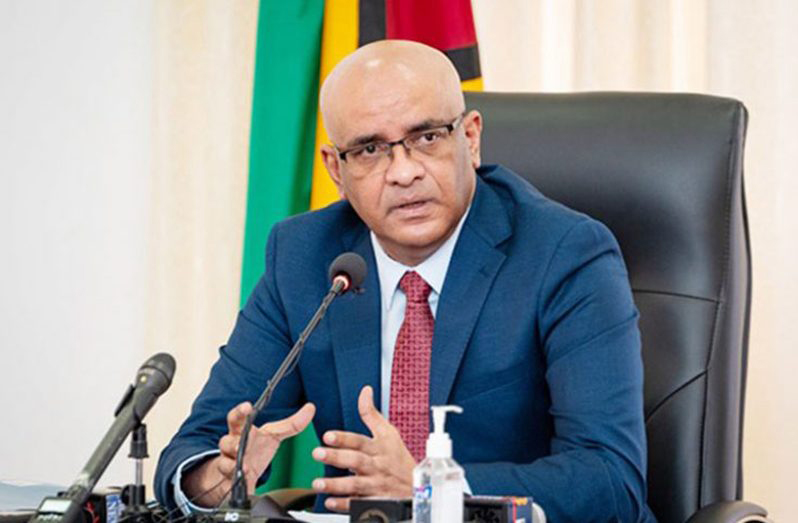
VICE President (VP) Dr. Bharrat Jagdeo, in his inaugural press conference for 2024, highlighted the robust interest in Guyana’s carbon credit, affirming that the nation will not proceed with another sale unless the market conditions are extremely favourable.
In accordance with his remarks, Guyana, renowned for its dedication to forest conservation, persists in prioritising the trade of its carbon credits, exclusively collaborating with companies that present advantageous terms.
The vice president related that “we are in a comfortable position to explore the markets that way because we have a strong product.
We’re fortified by a solid agreement that defied market expectations, and now we have several parties with interest.
The aspects relating to the market, in part impacted by the lack of progress in this area at the COP 28 meeting, make the case that through bilateral deals, similar to the one that we did with Hess, we’d be able to advance the sale.”
In 2022, Guyana entered into a historic agreement with Hess Corporation, purchasing approximately one-third of all Guyana’s credits, which were issued by the framework for REDD+ Transactions (ART). Additionally, it should be acknowledged that Guyana has the capacity to generate funds for the backing of developmental endeavours and climate adaptation in its hinterland by means of carbon credit sales.
The first payment of US$75 million (or G$15.6 billion) was made to the nation in 2023. Of this, about 15 per cent went towards projects led by communities or villages for Indigenous Peoples, and the remaining 85 per cent went towards adaptation measures specified in the nation’s Low Carbon Development Strategy (LCDS).
Although Guyana entered a voluntary market, Dr. Jagdeo insisted that the nation and many countries like it could make more money in a structured market.
During the 28th Conference of Parties to the United Nations Framework Convention on Climate Change (COP28) in Dubai in November of last year, Dr. Jagdeo expressed his disappointment to reporters about the lack of progress made in the development of the carbon market.
To summarise, carbon markets serve as platforms for the buying and selling of carbon credits. Since 2007, Guyana has been advocating for the implementation of a formal, carbon-market-based system in order to simultaneously safeguard its forests and promote development.
Dr. Jagdeo has asserted that Guyana has successfully formulated one of the initial strategies worldwide for low-carbon development, establishing a distinctive mechanism in the process.
As part of Guyana’s first carbon credit commercial transaction, Guyana has entered a voluntary market whereby the nation must raise a minimum of US$750 million in order to maintain its forests, but a structured mechanism might provide Guyana and other developing nations with a “greater incentive.”
(This is part of a weekly series on LCDS) The author can be contacted at cparkinson0206@gmail.com



.jpg)








